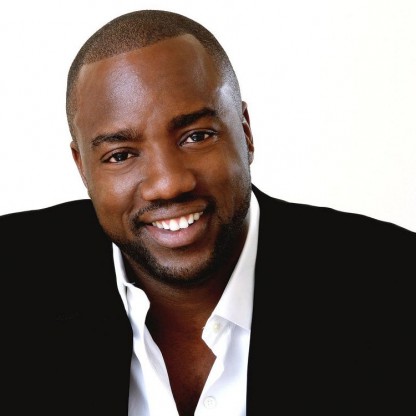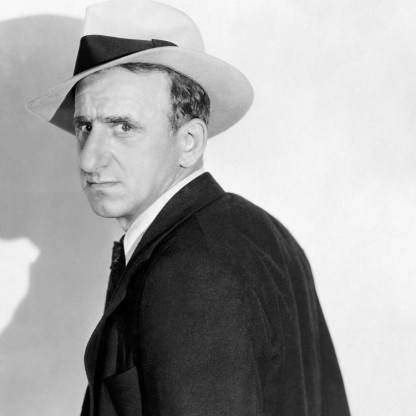💰Elvis Net worth: $20 Million
He is the best-selling solo artist in history. Recognized as being responsible for the popularity of Rock 'n Roll music, this musical pioneer transcended boundaries, becoming a cultural icon who ushered in a new era. Such is his fame that his last name is largely unnecessary – the name "Elvis" or "The King" is usually enough.
In addition to a musical career, Elvis appeared in numerous television shows and movies. His provocative image and style were highly controversial at the time, especially because of their sexual nature. Although the "King of Rock 'n Roll" might seem relatively tame by today's standards, he was one of the reasons the genre of rock was referred to as "Devil's Music" in these early days.
Elvis' Net Worth When He Died: Over the course of his career, he sold 600 million units worldwide. He commanded as much as $1 million per performance. 21 of his albums reached #1 and 35 of his singles reached #1. He was RCA's cash cow for almost two decades. When he passed away, he had only $5 million. While $5 million is certainly not broke by any stretch of the imagination, it is far, far, far less than he reportedly earned. So where did all the money go? In Presley's case, it went to four places – real estate, drugs, hangers on, and his divorce. He spent the equivalent of several million dollars acquiring and maintaining Graceland. He spent millions more partying and on his entourage. For a detailed breakdown of Elvis' wealth and fortune, please read this article. It should also be noted that his estate would go on to earn hundreds of millions of dollars in licensing royalties over the decades after Elvis died.
Early Life: Elvis was born in 1935 to an extremely tight-knit family in Mississippi. His parents were not wealthy, and his first home was a two-room house built by his father. He had a close bond with both of his parents, who tried their best to create a happy life for their son. Gladys, his mother, held the family together while his father, Vernon, did odd jobs to make ends meet. His father was jailed for altering a check from his employer when Elvis was three years old.
A young Elvis first encountered music at church, and in the streets where jazz music was played. As a student, Elvis was nothing more than average – but his musical talent drew the attention of his teachers. That being said, Elvis was shy about performing in front of others as a young boy – even after receiving a guitar as a birthday present and practicing with it.
After moving to Tennessee in 1948, the 13-year-old Presley continued his musical education – despite failing music class in school. Although he trained with several accomplished guitarists – many of which would be future pioneers of the Rockabilly genre, Elvis could not read music and played entirely by ear.
Sun Records and Early Success: After graduating high school, Elvis had settled upon a career in music. He visited Sun Records, recording two singles and making an impression on the label's boss, Sam Phillips. After working a stint as a truck driver, Elvis was called back into the studio by Phillips, who was searching for a way to market African-American music to a white audience. In Presley, he saw a way to do just that.
A long and arduous recording session ended with the taping of "That's All Right," which would prove to be Presley's first big hit. After searching high and low, Sam Phillips had found "that sound" that he'd been looking for.
Upon seeing him perform live for the first time, those same fans were enthralled by Elvis' movement on stage. Girls would scream and shout when Elvis started to shake his legs – something that was originally caused by stage fright.
After appearing in a number of television programs, Elvis began to pioneer the genre that would become Rockabilly. Ironically, this totally new sound made Elvis difficult to market to a wider audience, as radio DJs often weren't sure what to make of it. Country stations would avoid him because he sounded "too black," while blues stations felt that he sounded "like a hillbilly."
Record Deal With RCA: In 1955, Elvis signed a record deal with RCA for a fee of $40,000. By 1956, Elvis had released his debut album, which featured hits such as "Blue Suede Shoes." Although this hit was a cover of a Carl Perkins song, Elvis had transformed the Rockabilly single into something new – something more akin to a genre that would later be known as Rock n' Roll.
At this point in his career, Elvis drew criticism, attention, and controversy for his on-stage antics. In the eyes of many onlookers, the musician's suggestive hip gyrations represented "a new low" for mainstream music, while influential figures in the television world considered him "unfit for family viewing."
(Photo by Michael Ochs Archives/Getty Images)
On the other hand, youth across America absolutely fell in love with Elvis, and his concerts were wild enough to necessitate the attendance of National Guard servicemen. By the end of 1956, Presley had raked in $22 million in merchandise sales alone (not counting record sales). He also appeared in his first film during this year. In 1957, Elvis continued to release a string of singles that all reached the number one spot in America.
Military Service: Upon being drafted, Elvis could have enlisted in the Special Services, nut instead chose to sign up as a regular G.I. to show solidarity with the average American. According to his fellow servicemen, he never tried to get special treatment and aimed to be a reliable, honest soldier.
During his military service, his mother became ill. He was granted leave to visit her on her deathbed and was seriously distraught when she died of heart failure a few days later.
Despite fears that his military service would derail his career, Presley's management carefully prepared for the two-year hiatus, steadily releasing a stream of unreleased singles while the musician was enlisted.
Hollywood and Decline: Elvis became heavily involved in films after his military service was over – a decision that proved damaging to his career. Appearing in a string of formulaic comedic musicals, Elvis released mostly soundtracks to these films instead of putting his musical career first. Slowly but surely, music lovers stopped taking him seriously.
Comeback: In the late 60s and early 70s, Presley's career resurfaced with a series of TV performances and successful tours. It was during this time that journalists started to refer to Elvis as "The King."
Death: After using various prescription drugs for years, his addiction took a serious toll on his health. After a number of overdoses and scares, Elvis was found unresponsive on a bathroom floor in 1977 – marking the death of a cultural icon.









